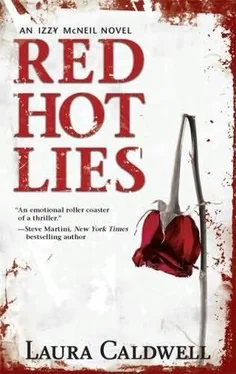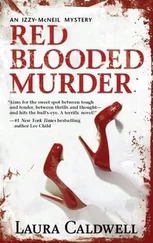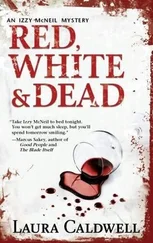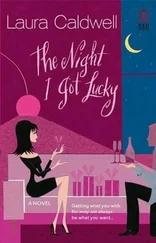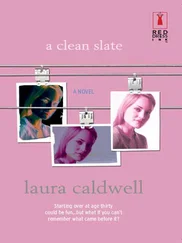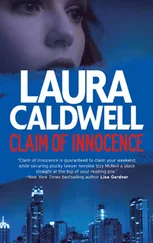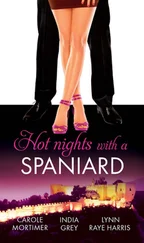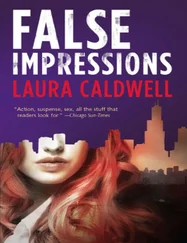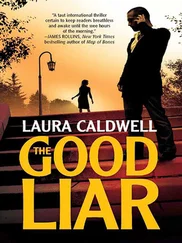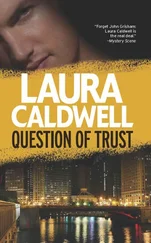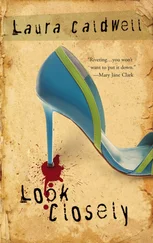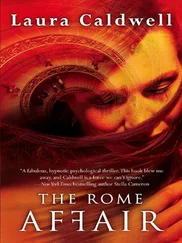I heard something that sounded again like the shuffle of feet. I glanced around, paranoia growing, my heart starting to thump, thump, thump.
Run, a voice in my head said. Get out of here.
I tried to tell myself again not to get paranoid. I tried to simply walk down Menomenee Street like it was any other day. But the shuffle came again, and again I heard my own voice say, Run, Iz.
I took a few fast steps. I could have sworn I heard a soft tap-tap of shoes behind me. I spun around. Nothing. No one.
I turned and walked faster. Again that shuffle sound.
I could feel the pulse in my temples. I could feel a little tremble of anticipation, and I cringed, as if I might be struck from behind.
Once more, I spun around. Still nothing, except that voice, insistent, in my head-Run, you idiot.
This time I listened, not caring what I looked like, not caring if I was being paranoid. I ran home and found myself all alone.
Day Three
Thursday morning, I went down the back stairs of my condo like I always did, desperate for normalcy. I would go to work. I would do my job. I would be grateful for it, and maybe that would help return things to everyday status. Maybe that would somehow return Sam. But at the bottom of the back stairwell, I dreaded having to step outside. My sleep had been spotty, jumpy, haunted by the memory of the tap-tap of shoes behind me.
With trepidation, I stepped outside my building and winced. Chicago had undergone a cold snap.
“Damn.” I gathered the collar of my coat around my neck. The coat-chocolate-brown and thigh-length, with a large belt-was more about fashion than warmth, and I hadn’t yet dug out my scarves or gloves. I looked around but only saw what I saw every morning-some houses still dark, others beaming with light and life as people got ready, a few commuters on the streets, walking to the El train.
I stuffed my hands in my pockets, jingling my Vespa keys as I walked from my graystone building to the detached three-car garage behind it. Maybe it wasn’t as cold as I thought. Maybe I could floor the scooter and ignore the weather.
The garage backed on to the alley, and each unit owned one spot. In the garage sat my neighbor’s cars and my little silver Vespa. I always rode the thing until it was ludicrously cold. During the winter I grudgingly took public transportation or cabs.
I touched the scooter and winced. It felt like a block of ice. Public transit it was.
I was about to close and lock the garage door when my eyes registered something unfamiliar. I glanced to my right, at the wall that faced our building, and noticed that the roller shade that hung over the middle window was open two-thirds of the way. When my neighbors and I had moved in, we decided it would be better to have a dark garage than to leave the windows uncovered and let thieves peruse the merchandise. We installed the blinds and always kept them closed. Always.
One of the neighbors could have just left the blind open, I thought. But then again, I’d been the last one in the garage yesterday night and that blind was closed. Neither of my neighbors appeared to have been in there yet today.
I walked to the window and went to pull the blind when I noticed that although a thin layer of dust coated the windowsill, a square imprint was clearly visible, as if someone had set something there. I swiped my finger over the square shape. It was smooth and clear of dust. Whoever had set something on the sill, marring the dust, had done so recently.
I peered through the window. The back of my building was visible, including the windows that looked out from each unit’s kitchen and bedrooms. I stared up at my condo. When I’d finally reached home last night after my walk-or should I say my run?-I’d paced from kitchen to bedroom and back again, in front of those windows.
I looked at the windowsill again and heard Detective Schneider’s words-Be careful…Who knows what he’ll do? But was this anything to be concerned about? What exactly would I say-I’ve noticed a disturbing shift of dust in my grubby garage? I didn’t see anyone, but I might have heard someone walking behind me in a city that has more than 2.8 million people?
Just then, I had the feeling of being, somehow, not alone. I spun around. The garage was the same as before-two cars, my silver scooter.
I yanked the shade down tight, pulled my collar tighter and left the garage, triple-checking the lock. I walked to the Sedgwick El platform. I got on the next train, stuffing myself inside with the rest of the crowd headed to the Loop. Everyone wore distant gazes or fiddled with their iPods, trying for the last few moments of personal time before beginning a bustling day.
I got out at Washington, walked to Madison and then west a few blocks until I reached the office. The whole time, I kept glancing over my shoulder.
Q was already at his desk. “Sleep?”
“Not much. You?”
He shook his head. “I’ve been here since six-thirty. I thought I might as well get some things done. Your brother called. Also, there was a message left last night from Shane’s secretary. The funeral is tomorrow at noon. Up in Lake Forest.”
He handed me a slip with the address of the church where the funeral would be held.
I felt like putting my head on the little wall surrounding Q’s desk and having a good cry. Instead, I managed to keep a bland look on my face and nodded. “How are you?”
“Fine, fine.”
“Why doesn’t that sound genuine?”
He shrugged. “It’s just-” he looked around “-everything. You know?”
I glanced around, smiling a tight grin at the assistants who were making no attempt to hide the fact that they were staring at us. “Right. Well, I’m going to…” I pointed at my office.
Q nodded and looked back at his screen. I stood a moment longer, looking at him. Something was different, but I couldn’t put my finger on it.
“What?” he said, looking up at me, feeling my gaze.
“Nothing. Nothing.” I finally turned and headed to my office.
I made some calls to a distribution company that wanted to buy the rights to a TV movie made by one of Forester’s companies. I halfheartedly argued with the distributor’s attorney about whether the company’s rights should end on the expiration of term or whether they should have the ability to purchase the rights again at that time.
Contract negotiations were all about give-and-take. They were all about making the other side feel appreciated and heard, and then making them realize that while they’d given a little, they’d gotten a heck of a lot more.
But I couldn’t give anything. I kept thinking about Sam’s e-mail account. I kept thinking that I knew more than a few of his passwords.
“I’ve got to call you back,” I said, interrupting the attorney on the phone.
I hung up and found the Web site for United Airlines. I put in Sam’s frequent-flier number and then his password.
Hello, Sam, the screen read.
“Hello, Sam,” I murmured. “Tell me where you went.”
I clicked on My Itineraries. I held my breath while the screen shifted.
I blew out in a long, steady stream when I saw what was there-one itinerary.
Our honeymoon.
In a month and a half, the day after our wedding, we were supposed to be boarding a flight to Madrid and then changing planes to fly to Málaga, Spain.
I sat back, again resisting the urge to cry. Why had I taken the wedding, the honeymoon, for granted?
I swung my chair around and stared out my window, then swung it back just as fast. It dawned on me that if I knew Sam’s passwords for his e-mail and the airline, wasn’t it possible he used similar ones for other sites? Like his credit card?
But an hour later, all I’d learned was that Sam hadn’t used his credit card since buying lunch at Custom House restaurant on the day he disappeared. And there was nothing interesting in the purchases he’d made in the previous month or two-no airline tickets on other airlines, no hotel bookings, nothing other than the usual stuff I knew he bought, like protein bars from the health-food store on North Avenue and socks from Bloomingdale’s.
Читать дальше
Конец ознакомительного отрывка
Купить книгу
